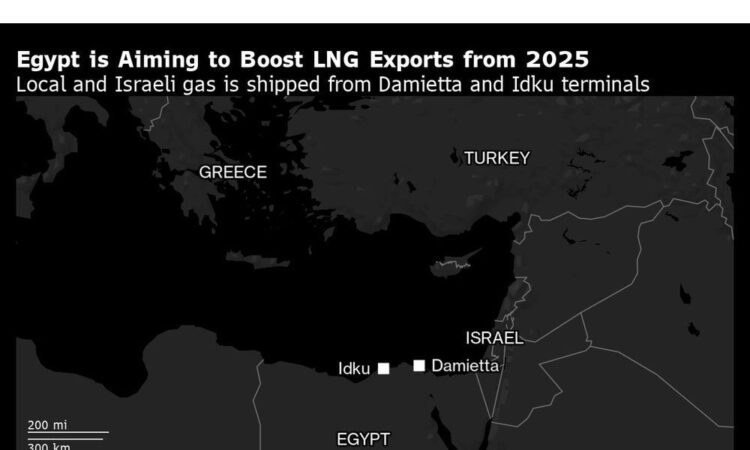
(Bloomberg) — Europe’s natural gas futures extended a rally after Chevron Corp. shut production at a field in Israel, potentially squeezing supplies from the east Mediterranean region.
The benchmark contract surged as much as 14%, the most in seven weeks. Chevron was told by Israel to shut down the Tamar offshore natural gas platform because of safety concerns after Hamas’s attacks over the weekend. Supplies from the Leviathan field continue.
This advertisement has not loaded yet, but your article continues below.
Israel, thanks to discoveries in the Mediterranean Sea during the past two decades, exports some gas to neighbors. It wants to steer more shipments toward Europe, which is recovering from its worst energy crises in decades.
Some Israeli gas is shipped to Egypt, which has two liquefied natural gas plants that send some of the fuel to Europe. However, the North African nation is yet to resume shipments after a summer halt caused by increased domestic demand.
Most of Egypt’s LNG exports went to Europe during the last two years, according to ship-tracking data compiled by Bloomberg.
Supply risks also mounted elsewhere. Workers at Chevron’s LNG facilities in Australia gave notice Monday to resume strikes, a move that may disrupt supplies and send prices higher.
In Europe, a leak was discovered on a pipeline in the Baltic region, sparking concerns about infrastructure security and supply as winter approaches. The fault was detected early Sunday in an undersea pipeline connecting the Finnish and Estonian grids, which operators closed while investigating the issue.
This advertisement has not loaded yet, but your article continues below.
Though the Baltic market is relatively small, the pipeline connects the new floating LNG import terminal in Finland with Estonia. The region depends heavily on LNG after cutting Russian pipeline gas purchases.
While the incident appears contained, it highlights the vulnerability of undersea infrastructure following blasts on the nearby Nord Stream pipelines a year ago. With the Northern Hemisphere entering its heating season, focus is increasingly on any potential disruptions, even with European gas stockpiles at almost full capacity.
“Energy prices seem overly reactive to news still following the crisis, despite EU reserves nearly at 100% already,” said Tim Partridge, director of energy markets at utilities consultant Eyebright Ltd.
Gas also tracked advances in crude oil prices, which surged after Hamas’s deadly attacks. German power for November followed gas higher, climbing 9.2% to €106.45 per megawatt-hour at 2:52 p.m. local time.
Front-month gas in the Netherlands, Europe’s benchmark, gained 11% to €42.31 a megawatt-hour by 2:52 p.m. in Amsterdam. The UK equivalent also surged.
—With assistance from Kati Pohjanpalo.





